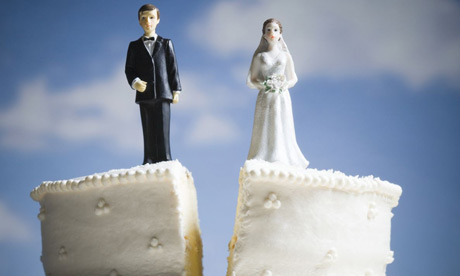
Many people don’t realise the affects getting married or divorced can have on your estate whether you die with a Will or intestate (without a Will).
This article aims to address the ways in which either a marriage or divorce can affect the terms of your Will.
Marriage
A common misconception is that getting married has no effect on an individual’s Will, however this is not the case.
Quite simply, marriage revokes your Will unless your Will contains an in contemplation of marriage or in contemplation of civil partnership clause in there.
This can be an issue where someone has remarried and has children from his or her first marriage that should benefit under the terms of the Will. If the current Will does not include an in contemplation of marriage clause it will be revoked and therefore invalid. This means the deceased’s assets will pass in accordance with the laws of intestacy.
Example
Tom makes a Will in 2018. 2 years later he meets Rose and they decide to have a lavish wedding on a beach in Mexico. Tom fails to make a new Will after he marries Rose and dies soon after from an underlying health condition.
This means that Tom has died intestate and his assets will pass in accordance with the laws of intestacy. In this case it may work out well for him if his estate was worth less than £270,000 and he wanted it all to pass to Rose but what if he wanted to pass some of his estate to her and some to his parents?
If Tom had made a Will after he got married then his estate would pass in accordance with the terms of his Will.
Contemplation of Marriage or Civil Partnership
Earlier in this article we mentioned that marriage revokes a Will unless the existing Will contains an in contemplation of marriage or contemplation of civil partnership clause in there.
If the testator expects to be married to a certain person at the time the Will is signed, when they do marry, the Will shall not be revoked. The clause will need to include the name of the person the testator expects to marry. If they marry someone else, the Will will be invalid.
Two conditions need to be met in order for this clause to be effective. Firstly, the testator must expect to be married or form a civil partnership with the said person at the time the Will is signed. It cannot be included where the testator believes they will marry this person at some point in the future.
Secondly, it must be clear from the Will that the testator intended that the Will should not be revoked by the marriage or formation of a civil partnership.
What if the current Will contains an in contemplation of marriage clause and the couple go on to have a civil partnership?
If the current Wills include an in contemplation of marriage clause and the couple enter into a civil partnership, their current Wills will be revoked.
Divorce
When a couple commence divorce proceedings, they may decide to update their Wills only once the decree absolute has been received (the document which means you are legally divorced).
Until the decree absolute is issued, you are still classed as legally married to one another which means the spouse can still benefit in accordance with your Will if it is not amended and most people would want to avoid this.
Where a couple have commenced divorce proceedings or even prior to this, our advice is for them to re-write their Wills immediately. Unfortunately, no-one can know how long their life span is and therefore if the spouse was to die before the decree absolute was issued, either with a Will naming spouse as the first level residuary beneficiary or alternatively die intestate, their estate will pass to the spouse which is not what they would have wanted to happen.
It is also wise to sever the tenancy on any jointly owned property held to prevent it passing automatically to the separated spouse. This will enable each spouse to gift their share of the home as they wish to rather than it passing by survivorship.
Where the Will is re-written during divorce proceedings or even where you separate and do not want the other spouse to benefit from your estate, we would advise an exclusion clause in the Will specifically excluding husband/wife and stating this is not an oversight so the intention is absolutely clear. A letter of wishes should set out in detail the reasons for the exclusion in the event the Will is ever contested by the ex-spouse as this is what the Courts will seek to rely on. There is a risk the ex-spouse could bring a claim against your estate on the basis they have not received reasonable financial provision which is addressed in an SWW article here.
Once your divorce has been finalised and a decree absolute issued, the Will treats the ex-spouse as having pre-deceased you. This means if your current Will lists your spouse to receive your wedding ring or to receive your estate on your death, this gift will effectively fail. The same would apply to any appointments of the ex-spouse as trustee, executor or guardian.
What if I want my ex-spouse to benefit from my Will?
There are instances where the marriage may have ended amicably and they still wish to benefit one another on their death or for the ex-spouse to continue acting as the executor and trustee. Once the divorce is finalised, the ex-spouse is treated as having as predeceased you.
If the intention is for the ex-spouse to benefit from the Will once the divorce is finalised, the following clause would need to be included in the Will.
“Section 18A of the Wills Act 1837 as amended by the Law Reform (Succession) Act 1995 (or any modification or re-enactment) shall not apply to my Will.”
If you’re a couple looking to have your Wills written or updated, speak to a member of of our team, call 01362 288582 or email info@thewillmaker.co.uk




